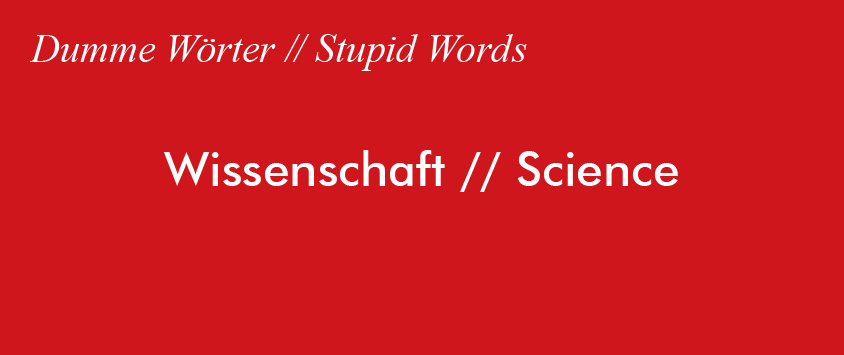Conventional positivist science allegedly has to:
- be verifiable (define and substantiate questions, provide sources, data, describe processes…)
- be reproducible
- demonstrate upon which scientific approach it is based
- not necessarily be original or novel
The largely euphoric acceptance of science as a substantial, even ‘objective’ activity based on facts results from the misunderstanding that science creates knowledge.
What is overlooked is that this ‘creation’ does not designate the production of knowledge, but the conditioning of knowledge. Just as, for example, the word landscape indicates the cultivation of land, the shaping of land according to specific interests, for example according to capital interests. Similar to rulership that does not create rulers, but rather articulates power created by rulers who could only become rulers through their opposites, the servants or subjects.
Thus, science is only any good for bringing to mind which interests at which time established or currently establish something which is then called ‘knowledge’. A short recourse to history: It’s astounding that, before the modern concept of science ultimately asserted itself in the 19th century, the German term Wissenschaft was used in the sense of subjective knowledge and was hence closer to an opinion.
To put it briefly, Plato defined knowledge as being different from a mere opinion. He used the term episteme (cognition, knowledge) for the cognition of that which exists, of reality, which he understood as ideas. This theoretical knowledge (as opposed to techne, practical ability) is accompanied by doxa, an opinion. An opinion is directed at something that constantly oscillates between to be and not to be. While doxa is therefore less defined, darker than episteme, it is ‘lighter’ than agnoia, not-knowing. In this respect, Kant is much more apodictic: one can only speak of proper science if its certitude is apodictic.

